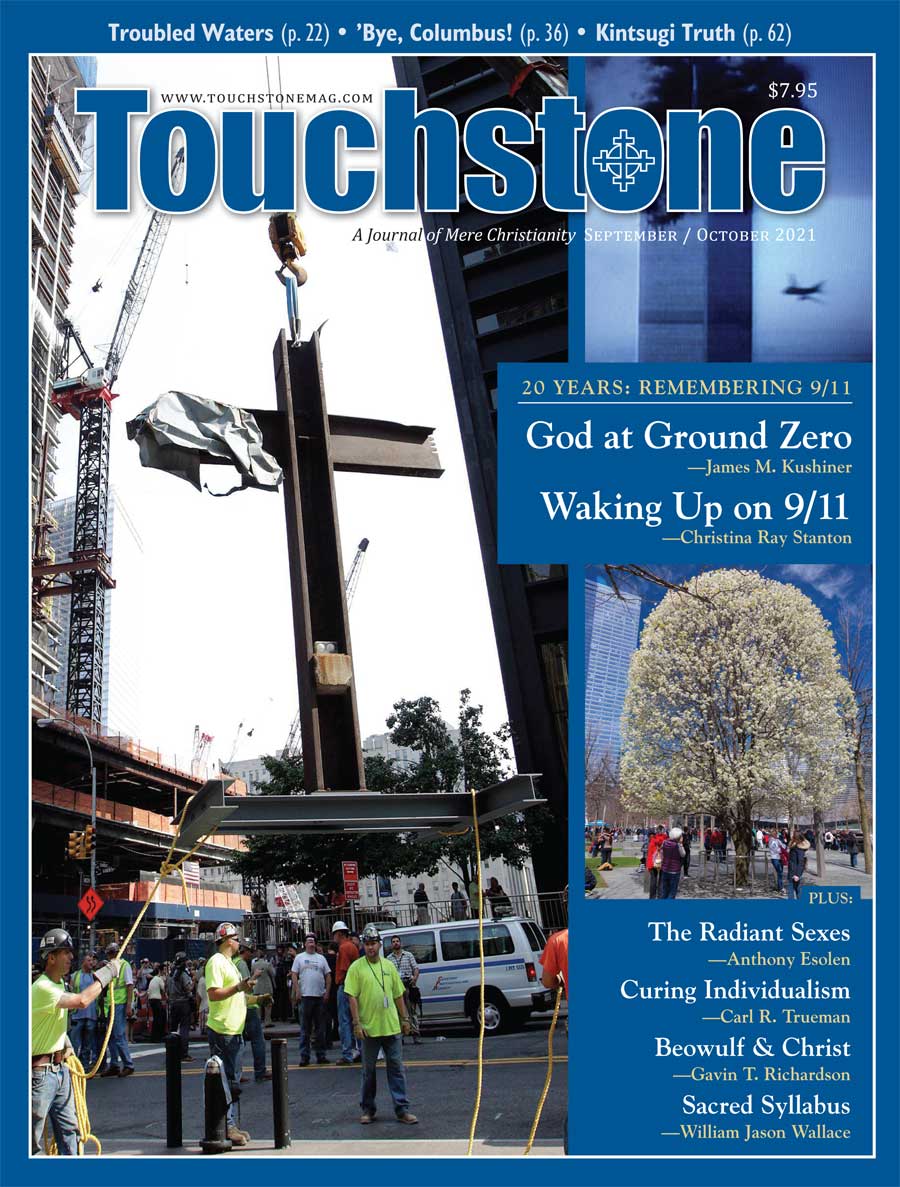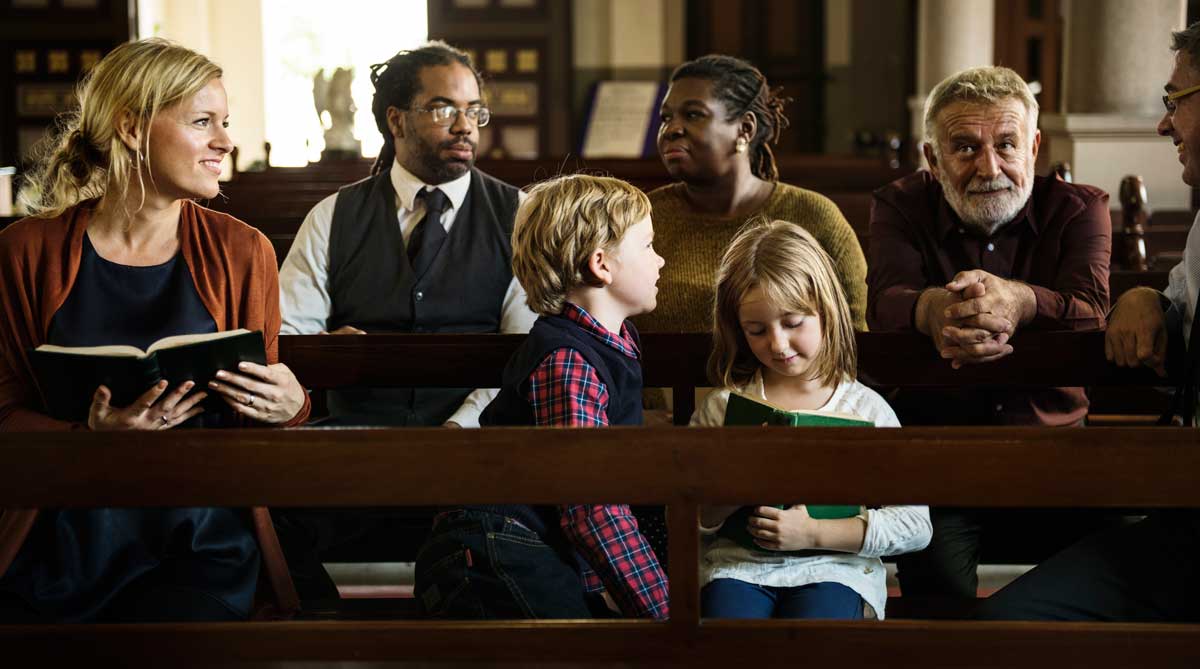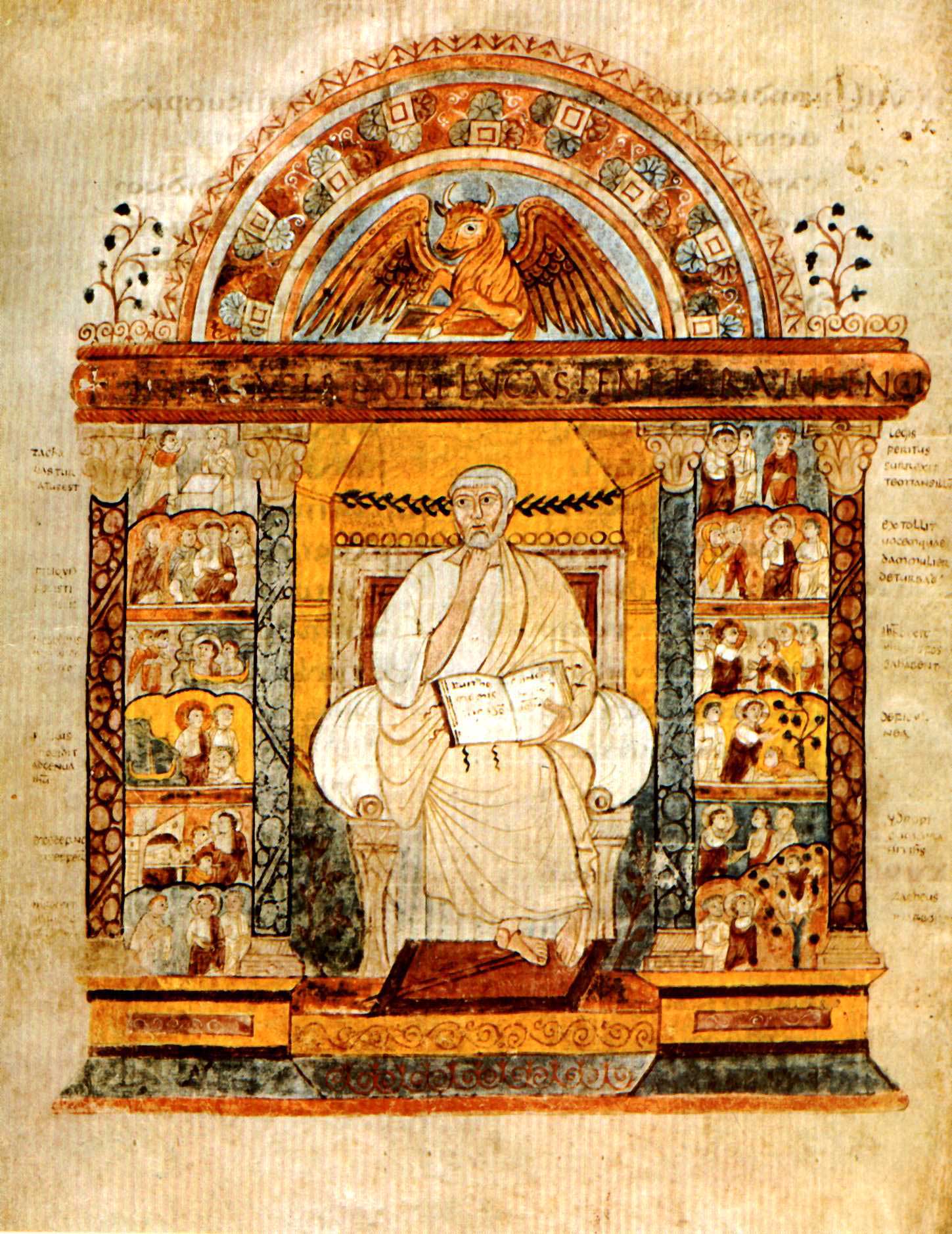More to Moore
Russell Moore: Vaya con Dios
Surveying a dozen or so news articles on Russell Moore's departure from the presidency of the Southern Baptist Convention's Ethics and Religious Liberty Commission (ERLC) to join Christianity Today as a public theologian has been a disheartening experience. Most of the correspondents got the basic facts right, but none that I read evinced any depth of understanding because they had themselves assumed the pervasive narrative in which everything that can be politicized, gets politicized, so that Russell Moore as a Christian man—from which his political views, often controversial and pleasing neither to the right nor to the left—got left in the offing.
Dr. Moore, for example, is noted for his active interest in racial reconciliation, an especially sensitive subject in a denomination with much bad history in that area, and of course an issue in which political conflict is at present roiling the nation. We at the helm of Touchstone (none of the rest of us Baptists, Southern or otherwise) see nothing primarily political about the brotherhood of all believers and the divine mandate for reconciliation of all men in Christ. This is mere Christianity. Billy Graham, himself a Southerner like Russell and the founder of Christianity Today, understood this and insisted under adverse pressure from conservative Christians that his rallies be desegregated in a day when the notion was unpopular. That Russell is an active proponent of racial reconciliation, cautious about and critical of non-Christian approaches from right or left, is a discipline we would expect of him.
Similarly, Russell has been criticized for a reputedly weak approach to illegal immigration. But once again, the laws of the United States or of any government do not translate immediately or without debate or remainder into the laws of God, who requires his people at the hazard of their souls to care for the poor, the homeless, and the stranger—none of which comports perfectly with the inclinations or the policies of the political right or left. That the divine command should be foremost in Russell's mind and labors, and that this would result in bipartisan dislike among religious citizens of his way of thinking, is no surprise but something that, once again, we would expect of him. Many of the difficulties he encountered as president of the ERLC we suspect are those of a serious believer suspended between faith and its political interpretations.
Russell got in a great deal of trouble in the ERLC for his vocal dissatisfaction with Donald Trump. Although we did not poll ourselves on the question, I believe most of the Touchstone editors disagreed with Russell on rejecting him, even if our support might have been granted on no stronger grounds than greater disgust with and fear of the alternative, as mine was. But on this Russell's reasons for speaking strongly against his candidacy—that Mr. Trump was morally unqualified for the presidency, and that his profession of Christian faith rang very hollow—were virtually indisputable and by no means unchristian.
When Christians trying to work as Christians in the political arena discover an opposition between piety and the practical ends alleged to serve it, it is the practical Christian, not the pious one, who is obliged to make a case for his opinion. I didn't find it difficult to make out a Christian case for voting for Mr. Trump, but even those of us who disagreed with Dr. Moore on this issue would find it difficult to dispute his place on the editorial board for contravening its spirit or constitution.
A letter from Russell addressed to the Executive Committee of the ERLC's Board of Trustees in February 2020 has recently leaked into the light. In it Dr. Moore chronicles the resistance he as its president has encountered from a powerful and deeply entrenched old-boy network in the Convention operating below the official radar. In the letter, Russell identified these people as a "toxic gerontocracy," racially bigoted, indifferent to correcting sexual abuse in the SBC's high places, and determined to cripple efforts at reform, including deliberative psychological warfare against Russell by impugning his character and motives and constantly launching "investigative" operations on his work.
From where we stand, the barrage of accusations Russell has endured that he is a "liberal" would be amusing in its absurdity if it weren't being used to torment a friend innocent of the charge. We know what a liberal is, and Russell Moore is such in no sense that we can imagine. That is one of the reasons we made him a senior editor and have never had occasion to regret it. We also have borne witness to what happens in churches where the sexual abuse with which Russell is at war is tolerated, and agree with him that waging this war and others like it has nothing to do with "moving left," but is simply the duty of a Christian man.
Now, speaking for myself, I think Russell wise and charitable to have withdrawn unbidden from the Touchstone editorial board upon his accession to a theologian's office at Christianity Today, for I believe the latter organization to be badly compromised by the egalitarian spirit of the age, with which we have been at constant war. It is a distant ally at best. For him to hold important offices in both organizations would have invited the presumption that we don't really take our collective stand on these matters all that seriously. We intend to keep that wall in good repair.
More specifically, as a theologian who grew up in Evangelicalism and was trained in one of its seminaries, I believe its spirit and natal theology—of which Russell is now, at least in some way, an official representative—are at the foundation of the movement's weakness and morbidity. On such matters I do not know Russell's mind or intentions, and of course it is early days in his new association, but I do know I will miss his brisk, richly informed, and highly intelligent input to our editorial conversations. When we were with him, I always had the impression we were in the presence of greatness.
S. M. Hutchens is a senior editor and longtime writer for Touchstone.
subscription options
Order
Print/Online Subscription

Get six issues (one year) of Touchstone PLUS full online access including pdf downloads for only $39.95. That's only $3.34 per month!
Order
Online Only
Subscription

Get a one-year full-access subscription to the Touchstone online archives for only $19.95. That's only $1.66 per month!
bulk subscriptions
Order Touchstone subscriptions in bulk and save $10 per sub! Each subscription includes 6 issues of Touchstone plus full online access to touchstonemag.com—including archives, videos, and pdf downloads of recent issues for only $29.95 each! Great for churches or study groups.
Transactions will be processed on a secure server.
more on politics from the online archives
more from the online archives
calling all readers
Please Donate
"There are magazines worth reading but few worth saving . . . Touchstone is just such a magazine."
—Alice von Hildebrand
"Here we do not concede one square millimeter of territory to falsehood, folly, contemporary sentimentality, or fashion. We speak the truth, and let God be our judge. . . . Touchstone is the one committedly Christian conservative journal."
—Anthony Esolen, Touchstone senior editor













